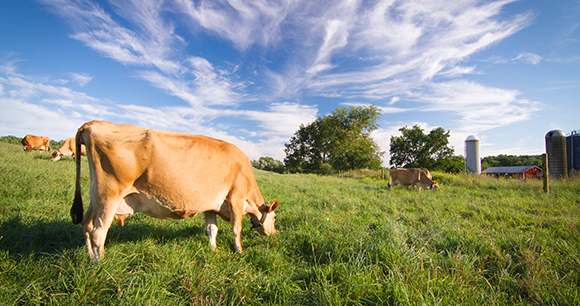
Washington, DC—A mammoth 640-plus-page farm bill draft (H.R. 2) was released yesterday and is scheduled for committee action next week. According to the nonprofit Animal Welfare Institute (AWI), the draft represents a mixed bag for animals. AWI commended the committee for omitting some of the language from past farm bills that the organization considers deeply harmful, but is urging committee members to make changes to other sections that have profound impacts on animal welfare.
The draft omits the Protect Interstate Commerce Act (H.R. 3599/H.R. 4879), a measure introduced by Representative Steve King (R-IA) that is particularly worrisome to animal welfare advocates. This proposed legislation is seen by many as an effort to force other states to accept farm animal products from industrial agriculture states such as Iowa, regardless of how the animals were raised. The measure would limit states’ authority to set standards for animal welfare within their own borders. It would, for instance, invalidate California's laws prohibiting the sale of foie gras and eggs from hens kept in extremely small, crowded battery cages. It would also interfere with restrictions many states have placed on gestation crates for pigs, tail-docking of cattle, and horse slaughter, and override efforts to ban the sale of pets from puppy mills.
“While this draft of the farm bill is merely the beginning of a long process, we are gratified to see that the King bill was not included,” said AWI President Cathy Liss. “We will be working with Agriculture Committee members to ensure that this language remains on the cutting room floor. The King bill would severely damage progress made in improving protections for animals in agriculture and the pet industry, while also potentially undermining food safety, worker protection, environmental quality, and consumer safeguards.”
Other provisions sought by animal welfare advocates were not included, however, such as language to put a permanent end to the system whereby random source “Class B” dealers sell dogs and cats (some of them former pets) for use in research, and language to crack down on the practice of “soring” horses (intentionally injuring their front feet and lower legs to enhance their gait for competitions). Said Liss, “We will continue to press for these and other changes that would do much to advance the humane treatment of animals.”
AWI also expressed concern over provisions in H.R. 2 that would undermine the Endangered Species Act (ESA). According to Liss, “The Endangered Species Act is facing assaults from many directions and we are determined to oppose any such weakening efforts through the farm bill.” The bill would, according to AWI, allow federal agencies to essentially ignore the impact some of their activities have on imperiled species in the United States. For instance, the U.S. Forest Service and Bureau of Land Management would no longer be required to consult with the U.S. Fish and Wildlife Service about whether a project adversely affects a listed species or critical habitat, and the Forest Service would not have to take impacts on these species into account when deciding whether to conduct an environmental assessment on a proposed action.
Further, H.R. 2 would exempt the Environmental Protection Agency from having to evaluate whether the use of pesticides affects threatened or endangered species, and from the need to consult with the Interior and Commerce Departments when approving pesticide use, as is currently required under the ESA. AWI claims this would give free rein to chemical companies to ignore the devastating effects of dangerous chemicals on imperiled wildlife.
Animal Welfare Institute, (202) 337-2332, [email protected]